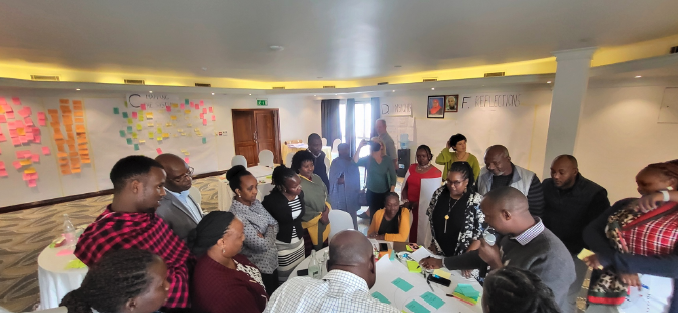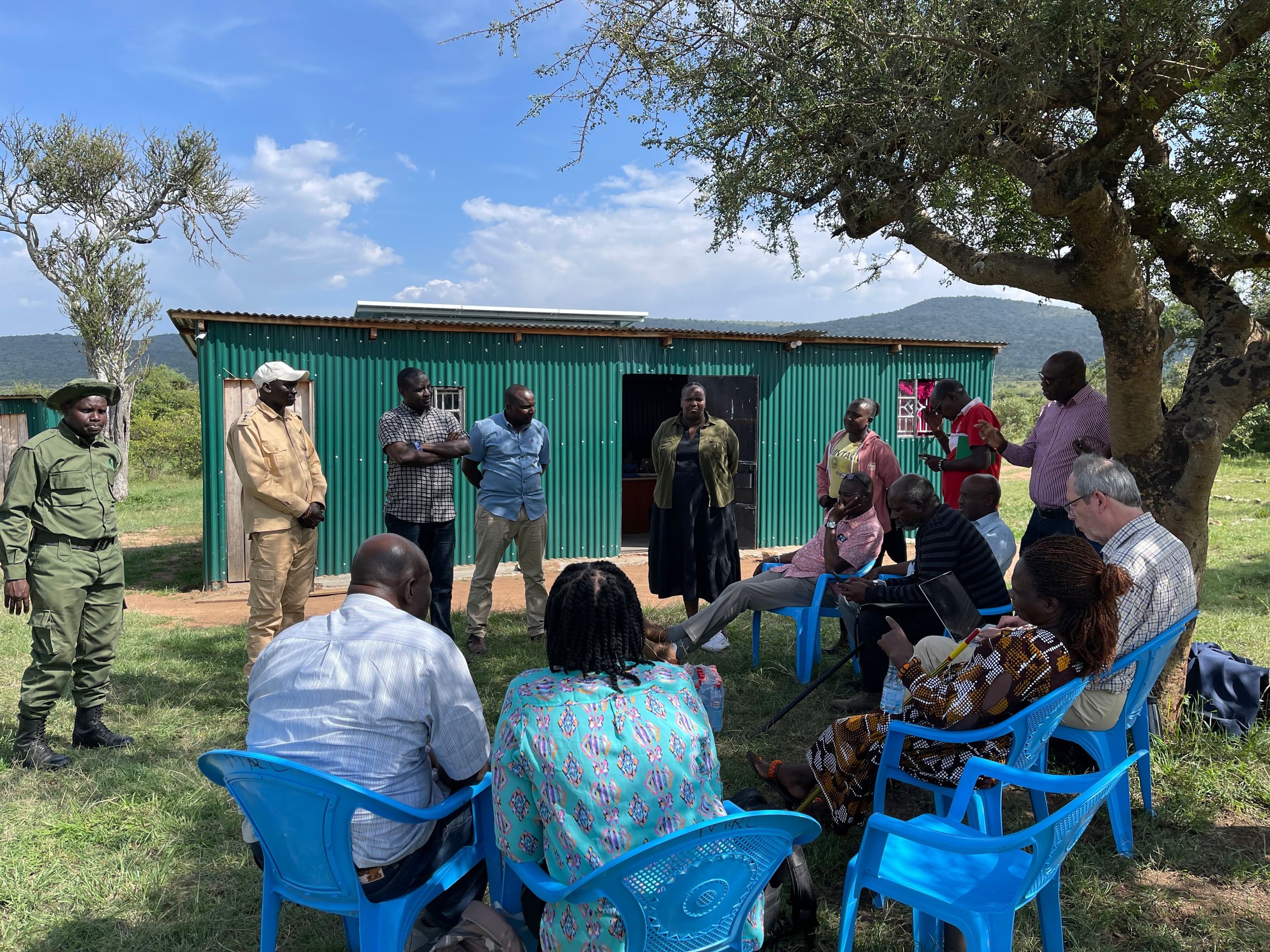In recent years, there has been a growing call for funders to recognise the shortfalls of philanthropy, and address the ways in which philanthropic institutions perpetuate harmful economic, colonial, political and cultural systems of domination. In the time of ecological collapse, polycrisis, war, authoritarianism, and with power and resource concentration in the hands of just a few wealthy individuals - how can we democratise power, and create systems and processes where those most harmed by current systems can steward us towards alternative, transformative and life-affirming ways of redistributing resources? At CJRF, we have been grappling with these generative challenges and questions over the past few years - particularly, as we transitioned from our former Global North funder-led board to a board made up of majority Global South practitioners and activists.
Christine Kandie, Endorois Indigenous Women Empowerment Network (EIWEN ) during the field visit at the Mara workshop.
In late 2023, the new board approved an 18-month strategy to deploy up to US$4M in various participatory grantmaking pilots - imagining relational and trust-based ways of stewarding resources to replace the traditional philanthropic structures and methods we adopted in the past, and taking a learning by doing approach to shape our future strategy. ISET International’s evaluation of CJRF’s Phase 1 (2017-2022) made several recommendations about how we could better support transformative change in the intersecting social, political, cultural and economic systems that undermine climate justice. It encouraged us to fund a more cohesive portfolio through a systemic lens. As a way of addressing these needs and opportunities, in September 2024, we launched our second pilot: participatory systems mapping for climate justice and resilience grantmaking in East Africa, with emphasis on socio-ecological systems across the Kenya-Tanzania border.
Our past and current partners in Kenya alongside our board members and staff recommended individuals and groups in Kenya and Tanzania to be a part of this pilot’s journey. We held an introductory meeting about the proposed approach with prospective Tanzanian collaborators in Arusha on the margins of the Community Based Adaptation Conference in May 2024. It was crucial for us to create grantmaking processes that fostered genuine collaboration and centred our partners’ expertise and experience to map systems, identify and prioritise points of leverage, and bring in other collaborators.
Workshop held in Arusha in 2024
The participatory systems mapping workshop was then facilitated by Emerald Network Ltd on 2-3 September 2024 in Arusha, and attended by a diverse group of 24 change-makers, 2 CJRF staff members and 2 board members. By the end of the workshop, we had a map of the socio-ecological system of relevance for climate justice in the Mara-Serengeti ecosystem, having discussed the context of land and conservation in the area, constraining internal and external factors for systemic climate justice change and named relevant actors.
Attendees used this system of relevance as a guiding map to identify priority grantmaking areas, types of organisations to resource, options for outreach and proposal development, potential number of grants and size of different grants. After the workshop, CJRF staff proposed a grant-making plan based on these agreements and shared it with collaborators for feedback. We incorporated the feedback and the final grantmaking plan was approved by the board in December 2024 to redistribute a total of $1.7m under the co-developed priorities and criteria set out below.
Workshop in the Mara, 2025
It was important for us to take a contextual, emergent, and iterative approach to the grantmaking, and as a result we designed unique processes for each of the priorities. We made some grants using the findings from the Arusha workshop and hosted another co-creation workshop in the Mara in February 2025 which helped us to fill identified gaps in the system, analyse power dynamics, co-create partnership grants and capture initial learnings from the pilot processes.
Priority 1: Strengthening marginalised voices on climate justice and resilience issues. In particular:
Reinforcing the agency of existing and emerging voices of Disabled people[1], women, youth and other marginalised groups in shaping climate solutions.
Developing the capacity of local leaders and communities to negotiate and advocate for rights (land and benefits sharing), change the narrative about pastoralist-led conservation and implement people-led governance structures for land and natural resources.
Priority 2: Addressing climate vulnerabilities and losses amongst marginalised communities. In particular:
Diversifying livelihoods for Disabled people, women, youth, and other marginalised groups.
Responding to climate-induced impacts on culture, identity, and self-determination.
Preventing and responding to gender-based violence.
Priority 3: Building and enhancing transboundary connections for solidarity and climate justice movement building. In particular:
Efforts to build solidarity, networks, consortiums between different actors in the landscape and with broader civil society.
Over the coming weeks, we will be sharing the identified system of relevance, announcing our new grant partners under each priority and diving a bit deeper into the specificity of each priority and what we learned through the use of participatory systems mapping for making climate justice and resilience grants in the Mara-Serengeti ecosystem and broader East Africa region.
[1] The Social Model of Disability developed by Disabled people suggests the use of Disabled people (instead of people with disabilities) to acknowledge that people are disabled by barriers in society, not their impairments or differences.



